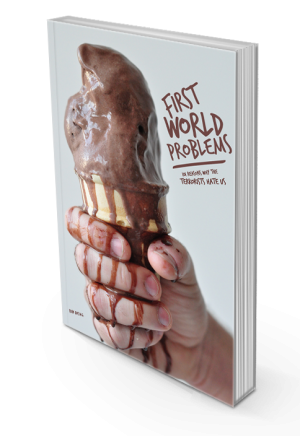You don’t need a big long winded speech to make a point or an impact.
In fact, it probably just dilutes the point you’re trying to make.
The more you write or talk, the harder it is to remember what you’re trying to say. Not always. Some professional speakers can talk for an hour and deliver point after point that’s consistent with a larger theme. But for the rest of us, brevity is something we should adhere to.
Brevity is a sign of wisdom.
The fewer words you need to make a point, the smarter you sound/are and the bigger impact those words will have.
Three quotes I read this year that led to a big shift in my thinking:
“Reject the tyranny of being picked. Pick yourself” – Seth Godin
“Life tastes best when you eat what you kill.” – James Altucher
“We will find a way. Or make one.” – Hannibal Barca
After everything you write always trim the fat. Eliminating unnecessary sentences and words creates less work for the reader and makes your writing punchier. Don’t water down your lemonade with fluff.
The beauty of Twitter is that you only have 140 characters to say something people care about.
Constraints feel limiting, but force creativity which is where we get our best work.
Connect with me on Twitter: @BenNesvig

Brevity is good, but don’t discount long sentences. The Altucher article has many long sentences, answering important reader questions like “What do you mean”.
Life only tastes good when you eat what you kill. When you hustle for what you earn and someone pays you money in proportion to the service you’ve offered, the idea you’ve created, your ability to execute on it, and their ability to consume it in a way that benefits them.Someone asked me the other day “what does it mean when you say you ‘eat what you kill’ “Brevity is one strategy for clear honest writing. It is not the only effective tool.
That’s true. I guess the general rule to follow is: Make everything as simple as possible, but no simpler.
When I think of brevity, it’s usually something that fits on one page. It could be a single sentence or an entire page. Eric Hoffer is a master of making brilliant points through aphorisms. His book “Reflections on the Human Condition” is proof that you don’t need to write a lot to say a lot.